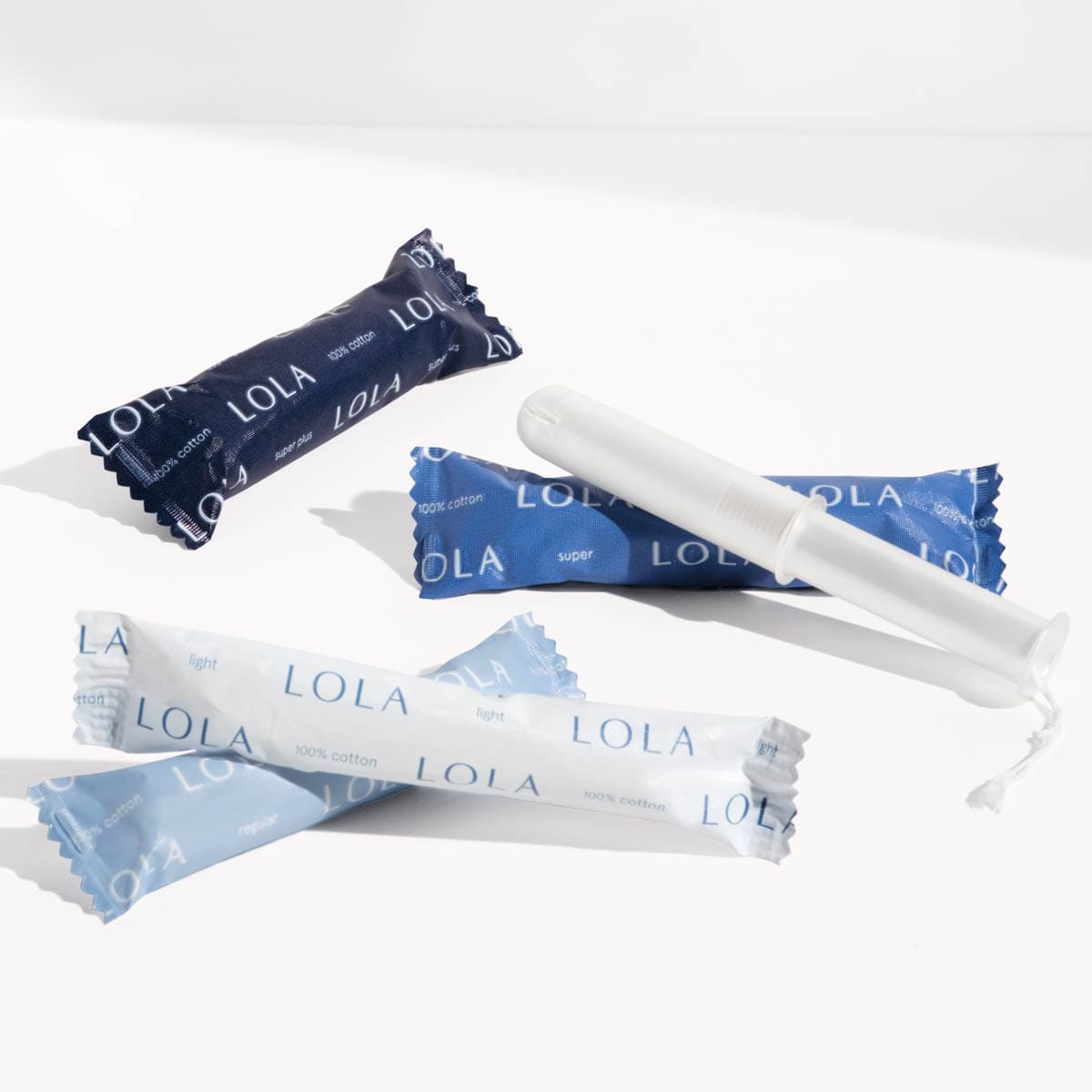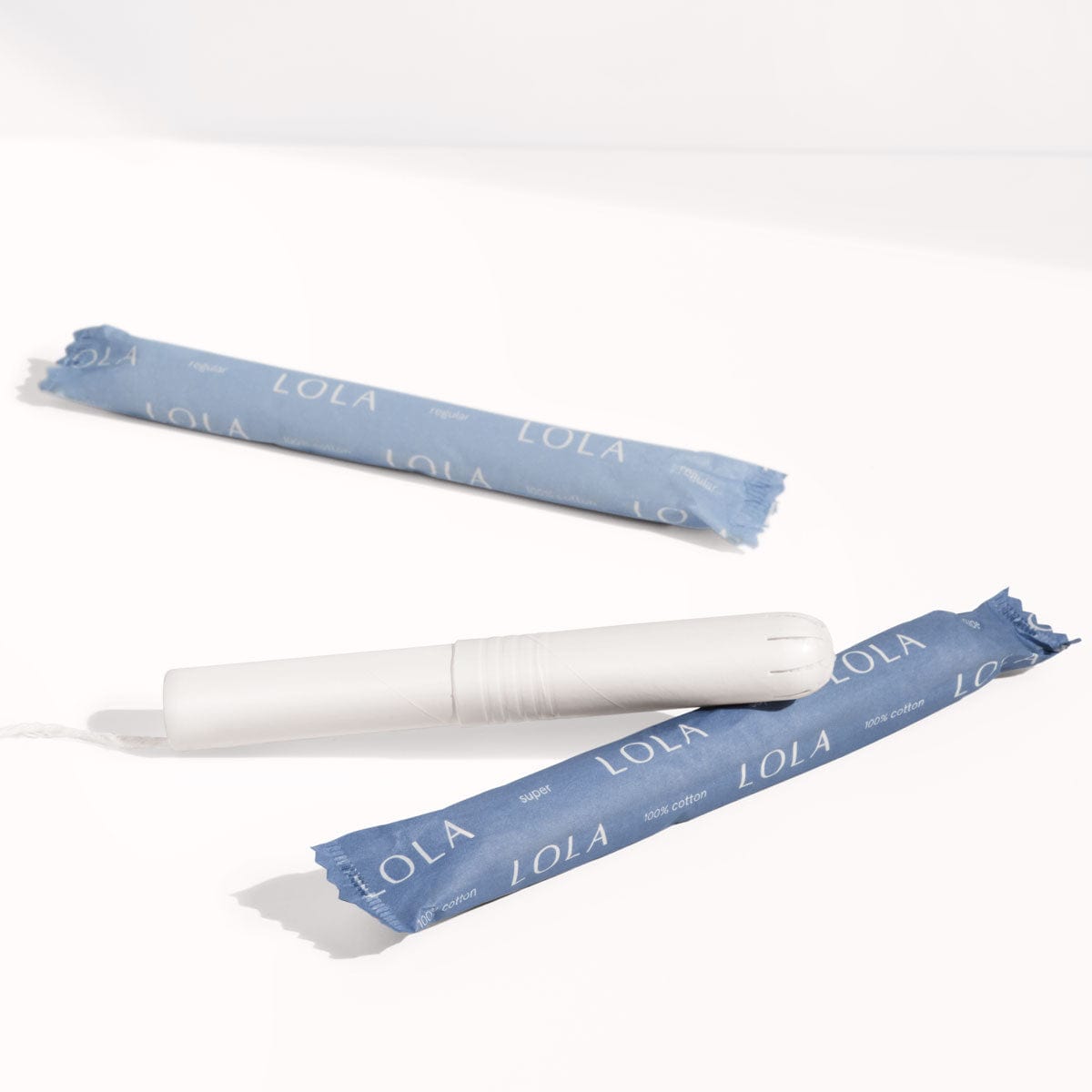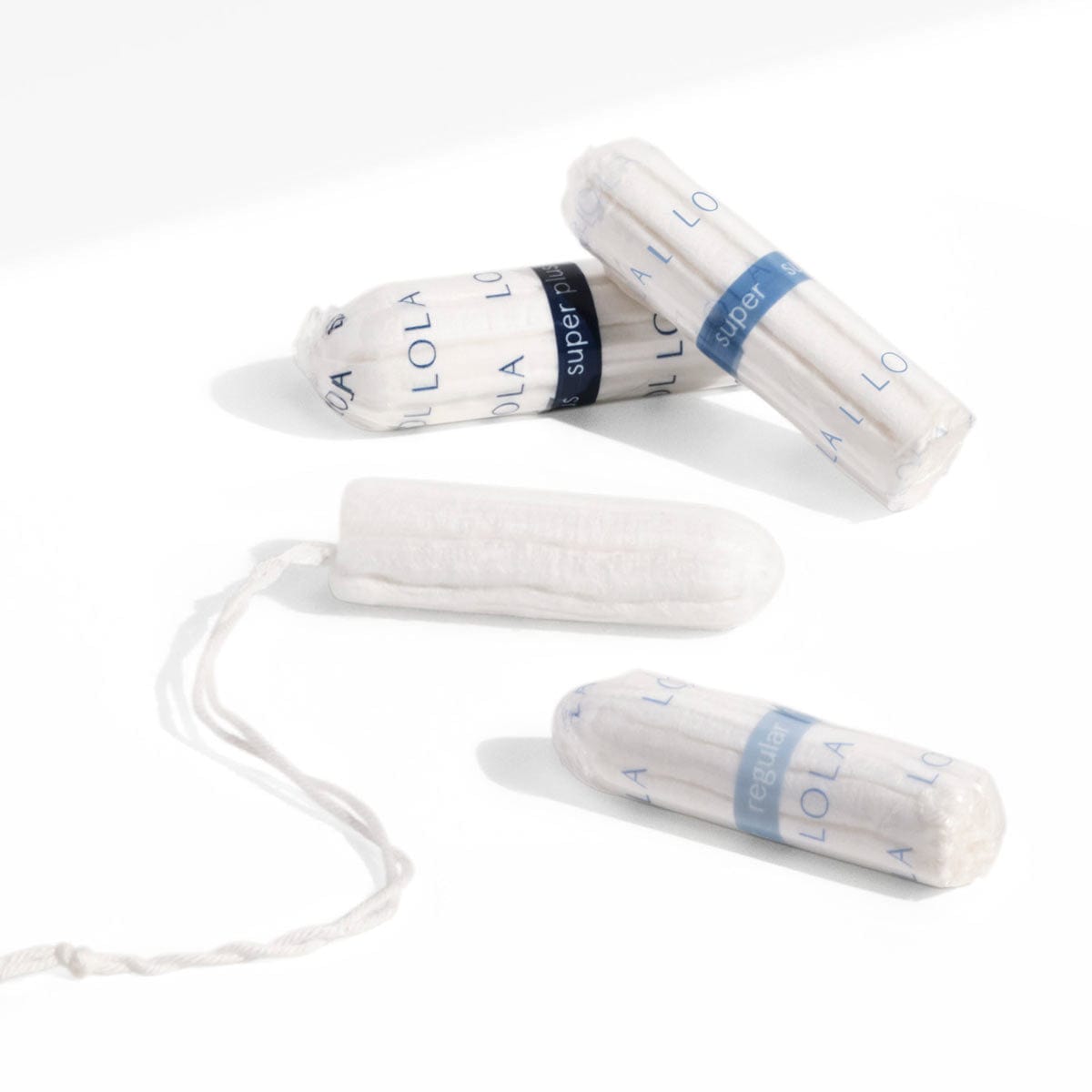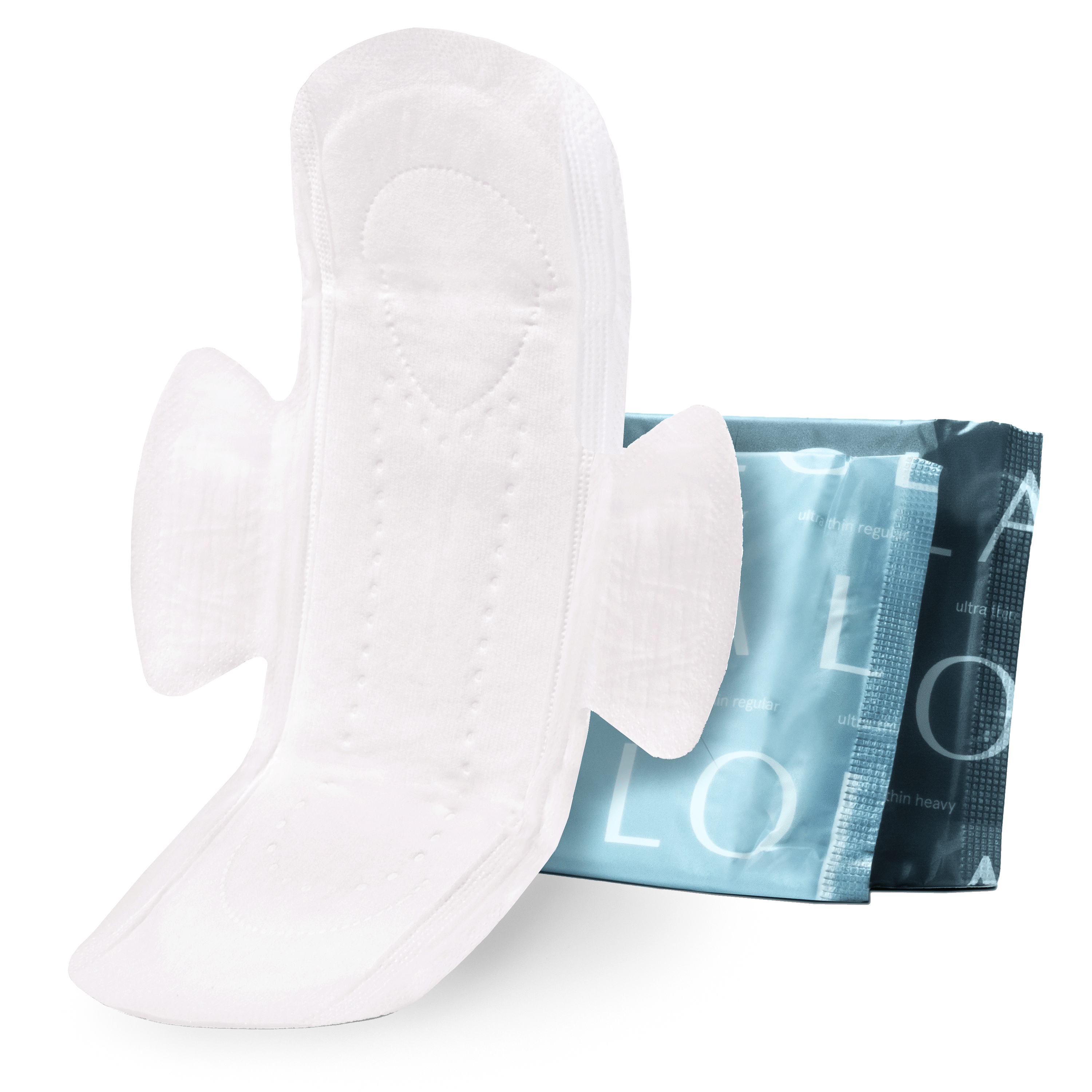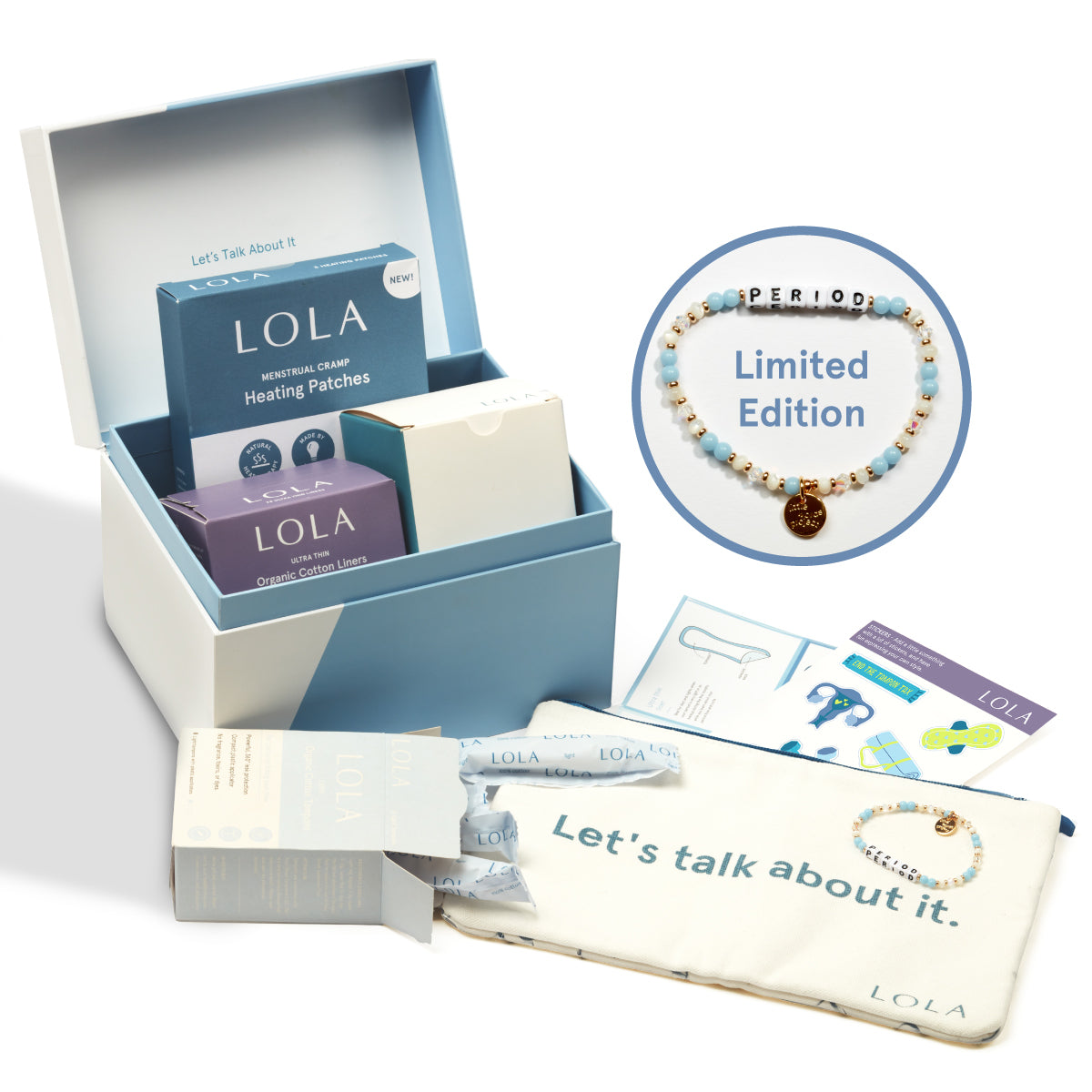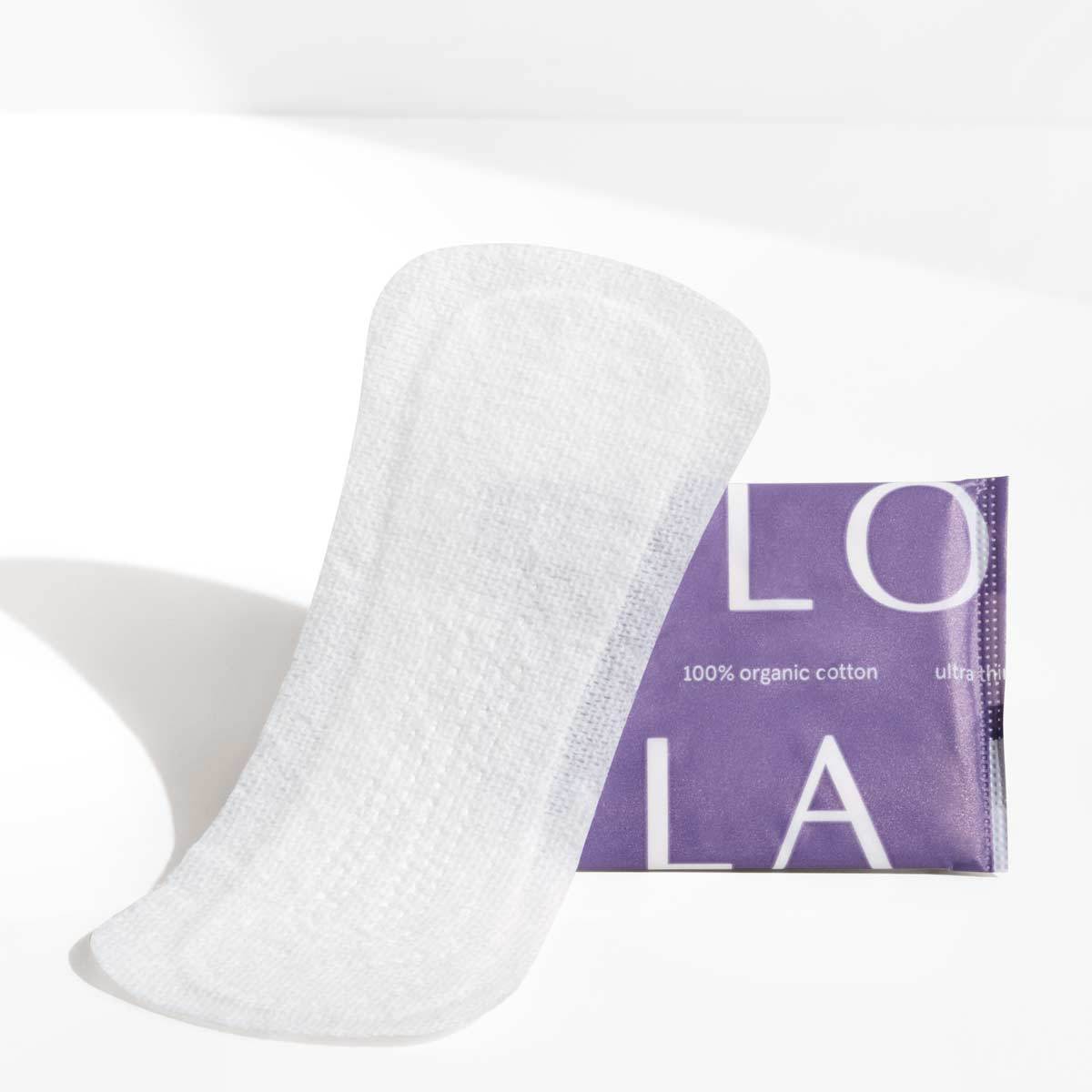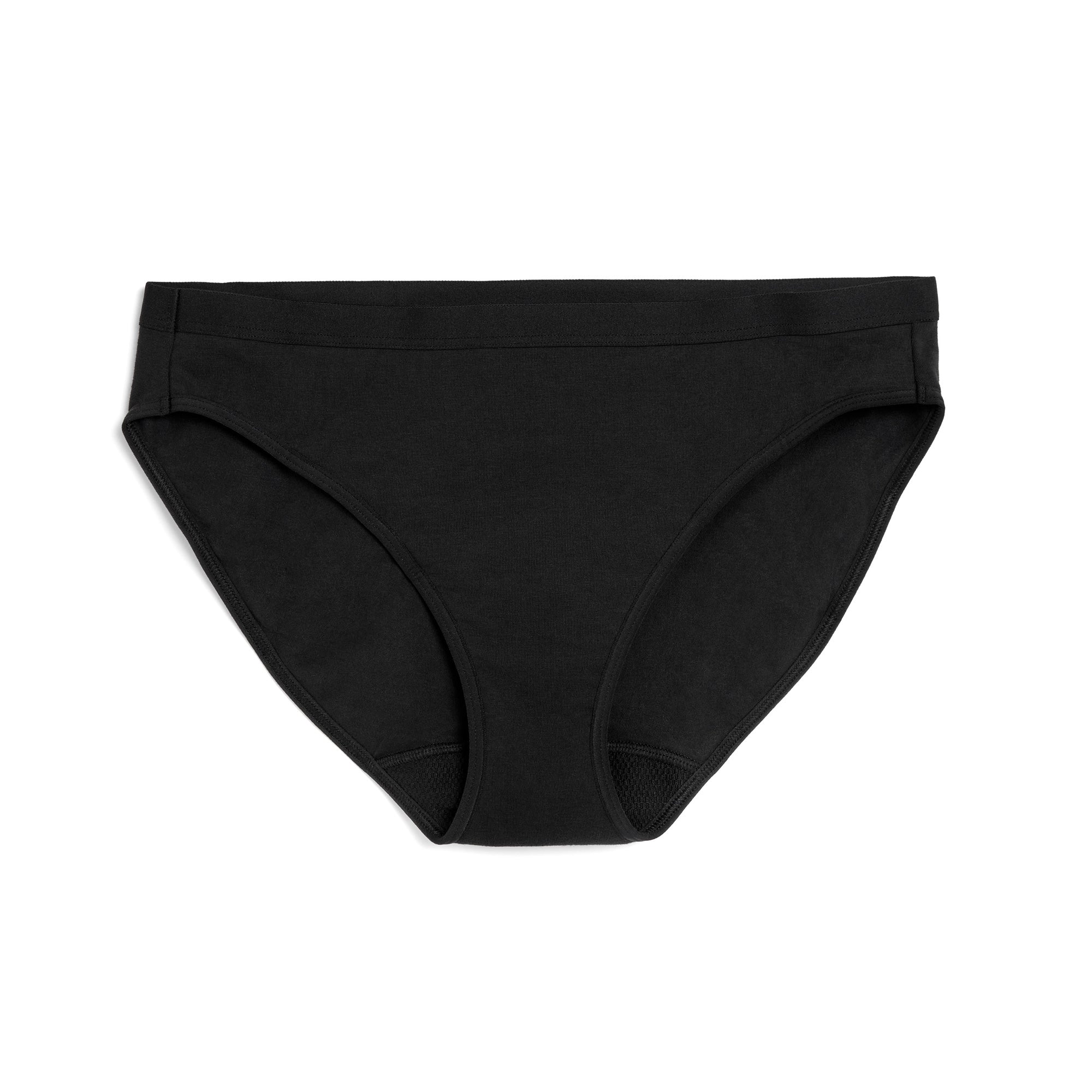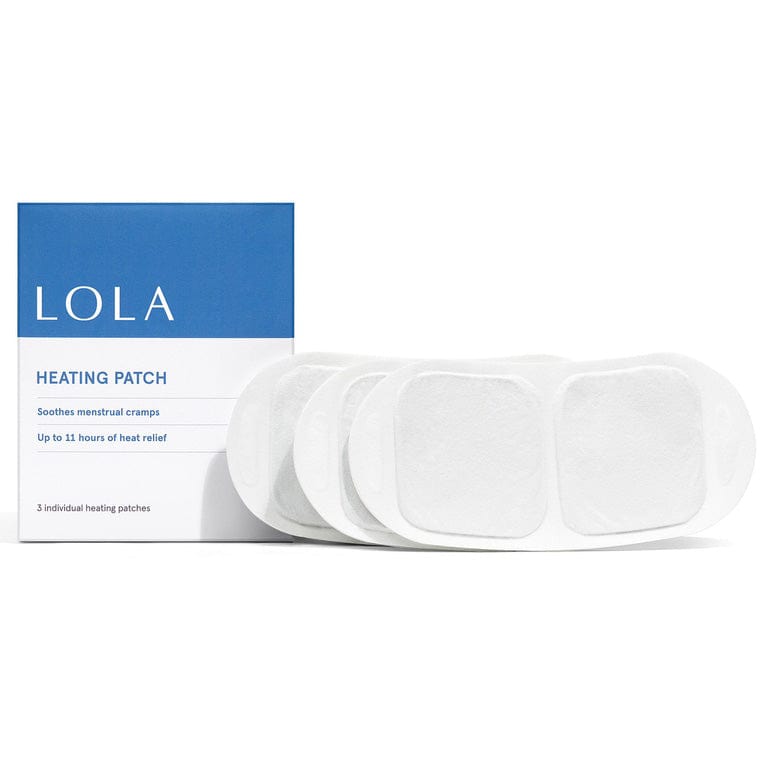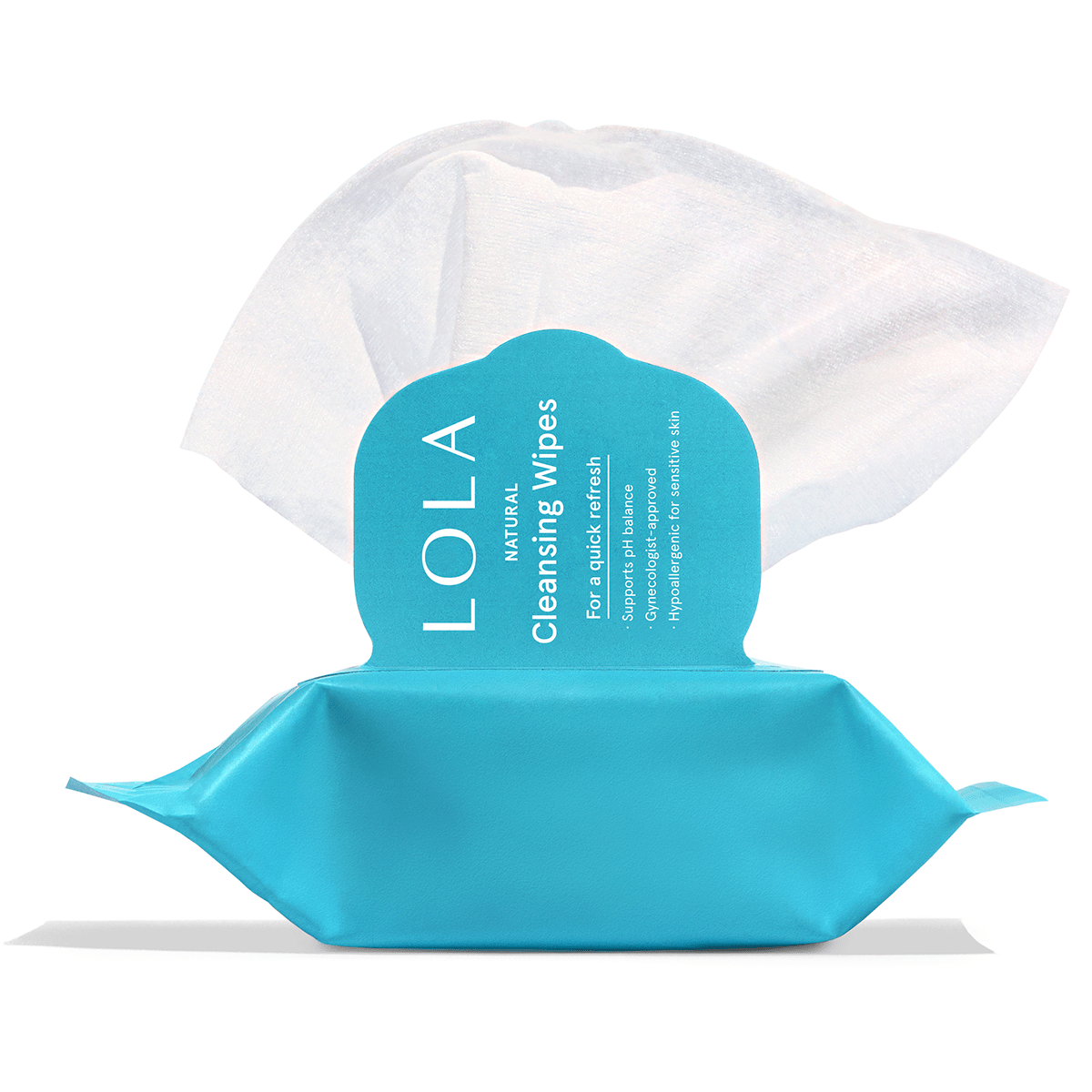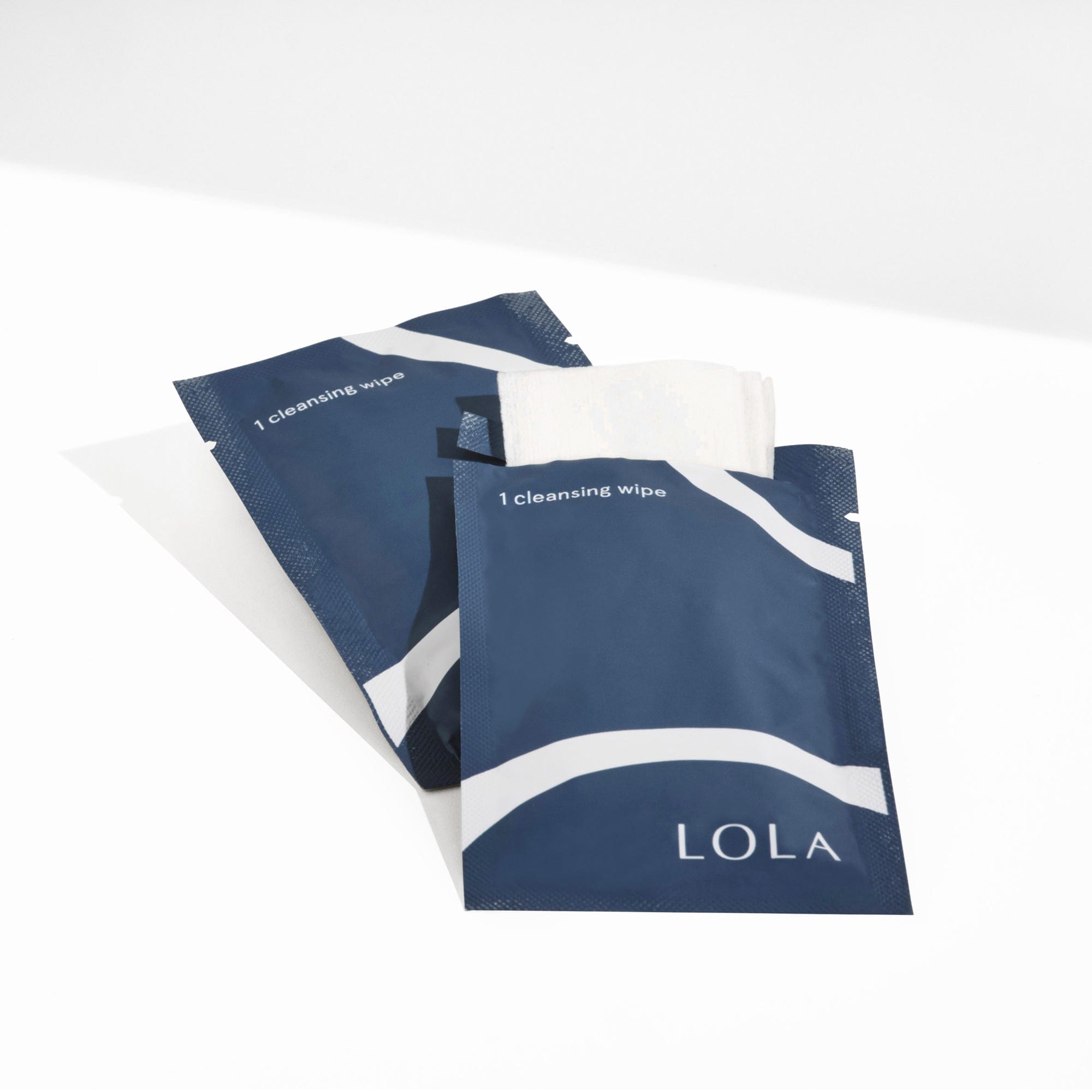There's one thing that can instantly make sex feel better for women. Nope, not fantasizing about John Stamos (but probably that too). It’s lube! Research shows that over 65% of women* say using a lubricant makes sex very pleasurable and more comfortable. But there are different types of lube and not all lubes are created equal.
Which one you'll want to reach for will depend on a few factors, including the kind of sex you're having, and whether you're using a lubricated condom or any sex toys. Here's what you need to know about them and how to choose the right one for you.
Why use lube?
Lube–also known as a personal lubricant–is a great sex accessory and makes the whole experience smoother and better for everyone involved. Using lube gets things slipping and sliding, reducing friction during sex—especially if you’re experiencing vaginal dryness south of the border. (Not everyone gets super wet, so this is totally okay!) Not only does this make penetrative sex easier–especially anal sex where natural lubrication is missing–lube also comes in handy for giving and receiving oral sex as well as during masturbation. The best part is that it can be used with all types of sex toys. Or it can lend a helping hand even if you’re using just your fingers.
Another benefit of lube is that it makes sex safer by reducing your chances of injuries (such as microtears) by reducing friction And if you’re using a condom, it helps in preventing it from sliding off or breaking.
What are the 4 types of personal lubricants?
There are 4 types of lubes, namely silicone-based lube, water-based lube, oil-based lube, and a hybrid lube that's water-based with traces of silicone or oil. Let’s take a look at each one in detail.
Silicone lube: great for longer (and toy-free) sessions
Unlike oil-based lubes, you can go to town with silicone lubes when it comes to condoms. A silicone-based lube is thicker and also doesn't* dry out like water-based lubes can, so it's a great option for those marathon sessions or shower sex.
Just be careful when it comes to adding silicone sex toys to the mix. Silicone lube and silicone toys don't get along. It sounds like it wouldn't be an issue, but the silicon molecules in both will actually bond to each other, ruining your toy. The good news? There's an easy workaround: just put a condom on your silicone toy. Or use a metal or glass toy. Keep in mind that once you're done, you might need to spend a little more time* in the shower getting silicon-based lubes off your body. They've got lasting power during and after sex. If you’re getting frisky on your bed, be sure to lay down a towel below you so that you don’t stain your sheets.
Water-based lubricant: inexpensive, natural-feeling, and great for toys
The major pros of water-based lubes: they mimic your natural moisture and they're cheaper than the others! They also work great with any toy (unlike silicone-based lubes, which we'll get to next) and condoms. Another benefit of water-based lubes is that they don’t irritate your genital area, which makes them an ideal option for people with sensitive skin. They’re also the easiest types of lubes to clean off.
That said, since they do mimic your natural moisture, water-based lubes are generally thinner than silicone- and oil-based ones and evaporate* more quickly, so you'll need to reapply during longer sessions. That goes for hybrid lubes that are water-based with traces of silicone or oil, too.
Hey, there, smooth operator! Use LOLA’s water-based hypoallergenic personal lubricant to make sex wetter and better. [Shop now]
The 411 on oil-based lube
If you remember nothing else about oil-based lubricants, remember this: never use them with latex condoms. The oil will degrade* the latex, making it way less effective at preventing against pregnancy and STDs. It's also not great for vaginal use in general, since it can irritate the skin lining of the vulva and mess with the pH levels of the vagina. Stick to oil-based lube* for anal sex and external activities like hand jobs (just make sure to shower off if you're going to move on to penile-vaginal sex afterwards).
Hybrid lube: the best of both worlds
Hybrid lubes are water-based with either silicone or oil mixed in. The result? A personal lube that offers the perfect mix of both the ingredients. You get a thicker texture than water-based lubes, but not so thick that clean up becomes a chore. They also last longer than pure water-based lubes. You can use hybrid lubes during sex toy play, anal sex, vaginal penetrative sex, or during your solo sex sessions.
While silicone-water hybrid lubes are safe to use with latex condoms, oil-water hybrids are not. When it comes to silicone toys, however, silicone-water hybrid lubes are a no go. So, read the packaging carefully and choose the best option depending on the type of sexual activity you’re going to engage in.
DIY and non-recommended lubes
Baby oil, petroleum jelly, and mineral oil might sound like a better idea than store-bought lubes with long lists of ingredients, but they're not always the better option. Baby oil and mineral oil, like store-bought oil-based lubes, will also damage latex condoms. And research has found that petroleum jelly such as vaseline and baby oil can increase the risk* of bacterial vaginosis or yeast infection. While we’re at it, don’t use essential oils, either.
Despite what movies might have you think, foods like whipped cream, butter, chocolate, and honey are also a big no-no. The sugar from these products can irritate your genitals and increase your risk of contracting yeast infections. Traces of dairy products can also stay on your delicate parts, turning rancid and inviting infections.
Problematic ingredients to watch out for
Some lubricants can cause irritation or allergic reactions, warns* the University of California's Berkeley Wellness, especially numbing and warming ones. Fragrance and flavoring ingredients can also be irritating, so use the inside of your elbow to do a skin test (more on this below) with that cherry-flavored lube a day or so before you plan to use it.
Other common culprits? Chlorhexidine, propylene glycol, and parabens (which will often be listed as methyl-, butyl-, ethyl- and propyl-paraben). Glycerin is another super-common ingredient. It absorbs water, which keeps things moist (yay!), but it also has sugar in it, so if you're prone to allergies, yeast infections, or irritation, you'll want to look for a glycerin-free lube.
Since you (or your partner) might not always know what you’re allergic to, it’s always good to perform a patch test before you start using any new kind of lube. To do this, wash a small area of your arm with fragrance-free soap. After drying it, apply a small amount of your new lube there. Cover that area with a bandage and leave it on for 24 hours. If you don’t notice any swelling, itchiness, redness, or blistering, you’re good to go with the lube!
Which lube is better, water or gel?
Lube is never a one-size-fits-all option, so the best lube for you depends on your skin sensitivity, allergies, type of sexual activity, and preferences. Water-based lubes are good for people with sensitive skin, during oral sex, and sex toy play (especially when you’re using silicone toys). These are also good options for you if you naturally provide a lot of lubricant and just want something thinner to add on to the mix.
Gel-based personal lubricants, on the other hand, are thicker, so they might be an ideal option for those who suffer from vaginal dryness. Silicone gel lubes are also waterproof, so they make for great friends when you’re having shower sex (because they won’t wash off unlike water-based lubes). They’re also better for long sessions and anal play.
If you’re a beginner to using lube, though, water-based ones are always a safe bet!
How to use lube
Personal lubricant can be used for every single type of sexual activity under the sun by people of all genders. (Yes, really.) Here are the different ways in which you can use your favorite lube.
During masturbation
Giving yourself a little lovin’? Adding some lube to the mix can really help you get things going. Whether you’re fingering yourself, using your battery-operated boyfriends, or simply rubbing yourself, applying some lube can reduce friction and keep things gliding smoothly.
Oral sex
Maybe you’re feeling dry, or your partner might not be producing enough saliva. This can leave you feeling sore and not very pleasurable. Enter: lube, which makes oral sex a lot smoother (pun intended) for all parties involved! But, make sure that you use an edible lube and stay away from flavored ones since they often have added sugar and other additives that can irritate your skin.
Handjobs
A small amount of lube can make all the difference between an okay-ish handjob and a great one. Penises don’t produce a lot of pre-cum, so using your dry hand to give your partner’s (mostly dry) penis a handjob can make it uncomfortable for both of you. The solution? Apply a generous amount of lube on both of your hands, pour a few drops on your partner’s penis and balls, and go to town! You’ll be surprised to feel the difference.
Penetrative sex (both vaginal and anal)
Our vaginas don’t always produce a lot of natural lubrication, even when being turned on. And even with the wetness, there’s always a risk of microtears and friction leaving you sore. To enhance the overall experience of vaginal sex (including fingering), use lube.
When it comes to anal sex, lube plays a very important role because the anus doesn’t have any natural lubrication. The lining of the anus is thin, and the rim is very sensitive. So, to make anal penetration safe and pleasurable, you need copious amounts of lube. We recommend silicone lube for any type of anal play since it’s more long-lasting.
Inside condoms
Cool lube hack: men can add a little to the reservoir tip of a condom to reduce friction* between skin and latex, making for a smoother experience. Just make sure you're sticking to silicone- or water-based only as oil-based lubes inside the condom will do the same damage as outside the condom.
Add a little oomph to your sexual wellness with LOLA
When it comes to any type of sexual activity, lube is your friend–even if you don’t think you need it. It just makes the whole experience that much better. So, always use more lube than you think you’ll need, but most importantly, pick the right type of lube based on your sexual activity and needs.
Take your sexual wellness up a notch with LOLA’s range of sexual wellness products. [Shop now]
